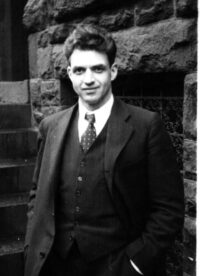W. Horsley Gantt Collection

W. Horsley Gantt
by unidentified photographer
Collection Overview
Creator: Gantt, William Horsley (1892 - 1980)
Collection Date: 1879 - 1978
Extent: 166 linear feet
Biography
W. Horsley Gantt was born in Wingina, Virginia. He received his B.S. in 1917 from the University of North Carolina and his M.D. in 1920 from the University of Virginia. Gantt went to Russia in the 1920s with the American Relief Administration, and while there became a student of Pavlov. He came to Johns Hopkins in 1929 and founded the Pavlovian Laboratory at the Johns Hopkins University School of Medicine. Gantt devoted his scientific career to furthering an understanding of the connections between physiological functions and behavior. He wrote over 400 scientific articles and several books, and he translated many of Pavlov’s works into English.
Scope and Content
The W. Horsley Gantt Collection spans his entire career, emphasizing his scientific research as well as Pavolov’s. Series include correspondence, research notes, manuscripts, reprints, and mementos from Gantt’s travels. The collection consists of numerous biographical materials, such as photographs, class notes, medical licenses, diaries, appointment books, and press clippings. Correspondence is categorized according to the following categories: family correspondence, general correspondence, and correspondence with organizations. Gantt’s scientific papers are primarily concerned with behavioral studies at the Pavlovian Laboratories. Particularly noteworthy are original handwritten letters from Pavlov and several photographs of Pavlov in his laboratory. A series of Gantt’s political papers highlights his interests and studies in Russia. These materials include Russian public health posters, books from Russia, clippings from Russian Science and other publications, and documents concerning Gantt’s political associations and social activism. Audiovisual materials consist of films, prints, and audiocassettes. The collection is particularly strong in documenting the influence of Pavlov on human and animal behavioral studies in the United States and abroad. Some related material can be found in the William G. Reese Collection.
